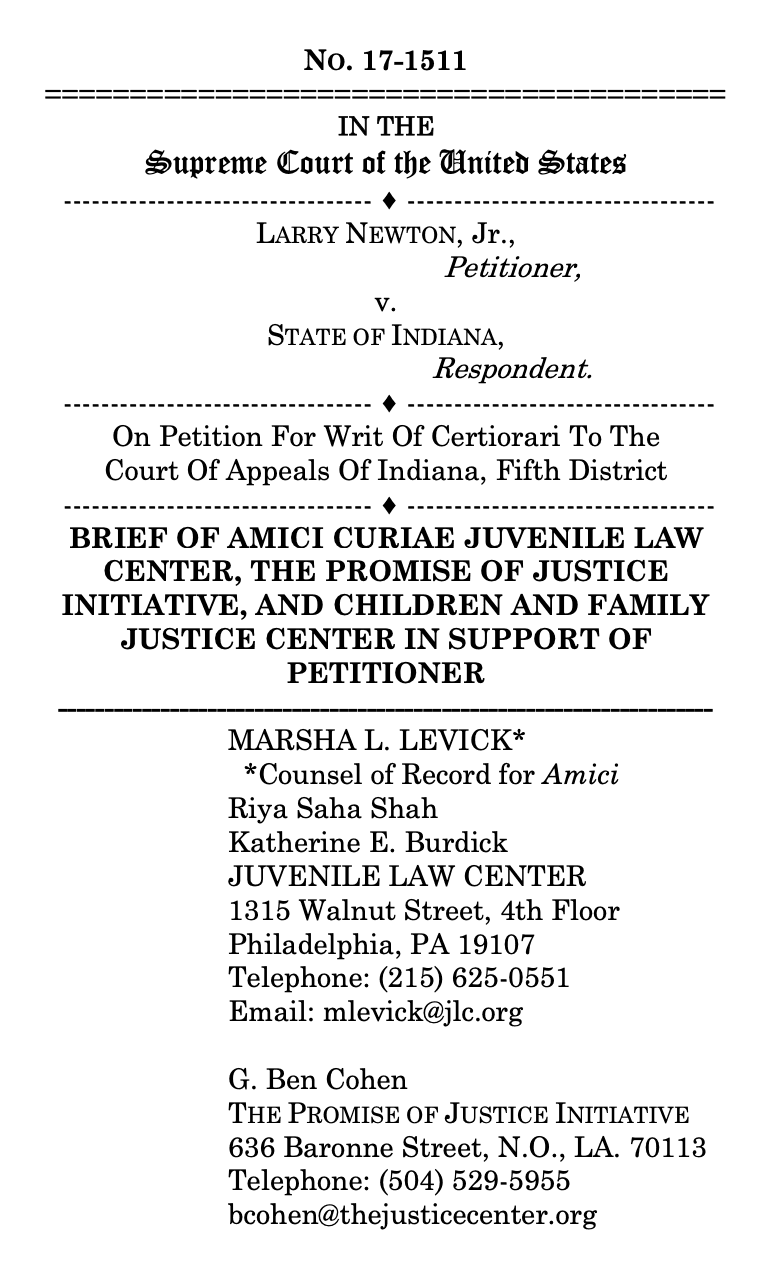
Summary of Argument
Mr. Newton was seventeen years old when he was presented with a Sophie’s choice: plead guilty to life without the possibility of parole, or face the real possibility of being sentenced to death. The principal use of capital punishment in the modern era has been to extract guilty pleas to other forms of harsh sentences. In Mr. Newton’s case, this prosecutorial practice was especially untenable due to his status as an adolescent, and the fact that this Court later declared unconstitutional the punishment that motivated Mr. Newton’s plea decision. See Roper v. Simmons, 543 U.S. 551 (2005). Mr. Newton’s sentence represents an unconstitutional vestige of the pre- Roper era, which this Court has not yet squarely considered.
Extensive jurisprudence from this Court, confirmed by neuro- and social science, makes clear that youth are uniquely vulnerable during plea negotiations. Plea decisions weighing a death sentence against a sentence to die in prison are of thehighest stakes, confounding a teenager’s ability to make a well-reasoned judgment. This Court has observed that our legal history is “‘replete with laws and judicial recognition’ that children cannot be viewed simply as miniature adults.” J.D.B. v. North Carolina, 564 U.S. 261, 273-74 (2011) (quoting Eddings v. Oklahoma, 455 U.S. 104, 115-16 (1982). This touchstone of the Court’s jurisprudence must apply to all aspects of criminal procedure that expose youth to harsh consequences—including the coercive guilty plea underlying the life without parole sentence here.
This Court’s understanding of the standards of decency has evolved since Mr. Newton was forced to make this impossible choice. See Stanford v. Kentucky, 492 U.S. 361 (1989), abrogated by Roper v. Simmons, 543 U.S. 551 (2005). It would be unconstitutional to impose this choice today. See Roper, 543 U.S. 551. Mr. Newton should not be forever trapped by the sentence imposed under these extraordinary circumstances. The Court should therefore grant certiorari to clarify that juvenile life without parole sentences, even those imposed by plea agreements, must be afforded the protections this Court laid out in Miller v. Alabama, 567 U.S. 460 (2012).